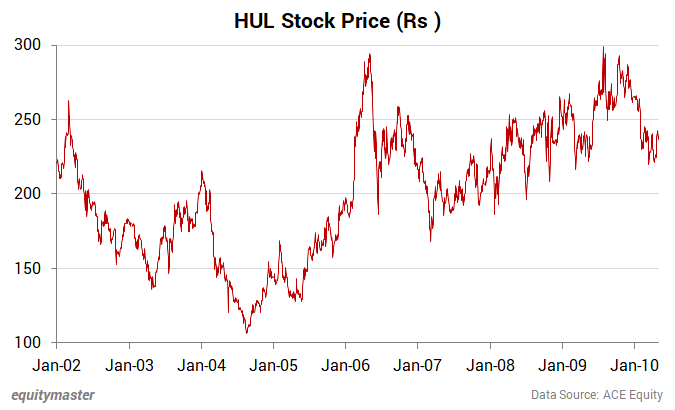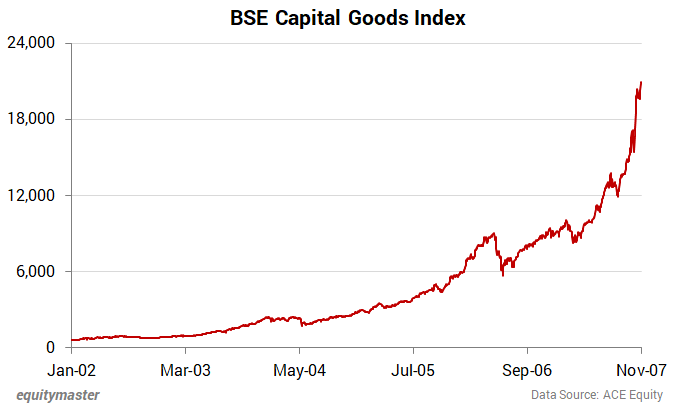Greed and Fear Pendulum: What's In Store for Indian Equities in 2023?

Author RL Stine is one of the highest-selling authors of all time. His genre was primarily scary kids books under the series 'Goosebumps'.
It sold almost 400 million copies worldwide.
However, very few people knew that before switching to the genre of children's horror fiction, he spent the first two decades of his arrier writing kids joke books.
Why did he switch after two decades?
Well, in his opinion, scaring people was easier than making them laugh.
The observation was that everyone had a different sense of humour. Some people liked dark comedy while some preferred clean comedy. It's very subjective.
In India too, take the example of stand-up comedians...
In my opinion, every comedian has a set of audience he targets with his stand-up act.
Some cater to the college crowd, some focus on politics, while others do an interactive session.
The point is, while everyone has a different sense of humour, we all have the same fears.
--- Advertisement ---
Investment in securities market are subject to market risks. Read all the related documents carefully before investing
This Silvery-white Metal is a Potential Fortune Maker
This silvery-white metal goes inside almost all the electronic gadgets that you use: mobile phone, laptop, Bluetooth speakers.
Not only that... this metal also goes inside equipment used by large data centres, telecom towers, railways, planes, EVs.
We're talking about Lithium. Lithium is the new oil.
Our research has found the best way to tap into this rising demand of lithium in India.
See Details Here
Details of our SEBI Research Analyst registration are mentioned on our website - www.equitymaster.com
---------------------------------------------
The author's premise was that all the kids are afraid of being in the dark, afraid of being lost, afraid of being in a new place.
Those fears are pretty much constant.
Hence, it is easier to target something which is common like greed and fear rather than humour or any other genre which is subjective and may be wary from one person to another.
This reminds me of the Hindi movie PK, where the protagonist, Aamir Khan, capitalised on fear to make money.
If you extrapolate this to the stock markets, don't we have to deal with the tale of greed and fear all the time?
Capital markets have always worked on the premise of selling either greed or fear and making money out of it.
The point is, how do we benefit from greed and fear? After all, we are in the business of making money. It is our job to make the most of market emotions.
So how do we do that?
While the answer is simple, I want to go one step further and highlight two things here.
- Both greed and fear in the stock markets are always overdone.
- Making money out of greed and fear involves timing the market.
A lot of people talk about buy and hold forever...
Well, in my opinion, buy and hold forever seldom works.
In fact, timing the market is equally important as time in the market.
Even in non-cyclical sectors like FMCG which are considered to be safe, the concept of buy and hold forever also fails.
Let me give you an example.
Consider Hindustan Unilever Ltd (HUL).
I am sure the initial thoughts which come to your mind will be 'safe stock' or 'quality company' or 'stable returns'.
Let me share some interesting facts about HUL.
From 2002 to 2010, HUL's stock price went nowhere. The stock went into an 8-year coma . The returns after dividends could barely even make up for inflation.
A Journey of No Returns in a So Called Stock

The reason why HUL didn't perform was the 'greed' factor at play during the period.
The period of 2002 to 2008 was a golden period for the economy with massive tailwinds for the capital goods sector. Every sector linked to infrastructure and capital goods was booming. In fact the real estate was on a roll.
During such times it is pertinent to focus on the sectors in favour, which were the economy related stocks, and not safe stocks like FMCG.
--- Advertisement ---
Investment in securities market are subject to market risks. Read all the related documents carefully before investing
Investing in Small Companies Offer Huge Potential Long-Term Growth for Early Movers
Find out how you can access our Premium Research on India's Emerging Businesses
Full Details Here
Details of our SEBI Research Analyst registration are mentioned on our website - www.equitymaster.com
---------------------------------------------
Had you instead invested in the BSE Capital Goods index in 2002 rather than HUL, you would have made a return of over 3,000% - a whopping 83% CAGR (compound annual growth rate) - over the next six years.
A Cycle of Great Returns

While this was one side of the story which was dominated by greed,, the other side favours fear.
Post the financial crisis of 2008, fear was at peak. Hence the FMCG sector became the darling of the market.
Basically, it was a shift from 'Risk on' to 'Risk off'.
The BSE FMCG index gave a steady 15% CAGR over 2012-2018 period, when the capital goods sector had stalled.

Basically, risk off is a play on fear. It results in money going to sectors like FMCG from capital goods and infrastructure.
I started the article with two basic ingredients required to make money in the stock market - greed and fear.
Timing them will help us make a lot of money. So let me answer the million dollar question...
Where are we now in the pendulum of Greed and Fear?
In my humble opinion, 2023 is likely to be more of fear rather than greed.
Three months in to 2023, the benchmark Nifty is down to 17,400 levels. The feeling among midcap and smallcap investors is already that of Nifty at 16,000 levels.
Imagine if Nifty fell to 16,000 levels. A mere 7-8% correction is required for that. This depends on factors like the US Fed's interest rate decisions.
The point is not how long the US Fed can keep raising interest rates. I am sure the end of rate hikes is near.
The question is... how long it will let those interest rates stay high before it starts cutting rates?
With sticky inflation in the US and even in India, interest rates are expected to be high.
At such times, equity valuations take a knock as money moves to, and stays in, bonds and FDs.
What should investors do?
It is said that during a downturn and high interest rates, the hiding places in the stock markets are limited.
However, with high interest rates, the Indian rupee is expected to fall against the dollar which will benefit IT stocks.
Most IT stocks have fallen by 30-40% from their peaks in 2022 and offer a good risk reward ratio on the valuations front.
The recession impact in the US is mostly priced in to Indian IT stocks.
2023 may not be a great year for the market. But I believe you should still make the best use of the conditions before us.
Look for good timing opportunities in select stocks on your watchlist.
If you believe in 'buy and hold', look for fundamentally good stocks for the long term and buy them if they fall to attractive valuations.
Warm regards,
Aditya Vora
Research Analyst, Hidden Treasure
Recent Articles
- Why CE Info and Netweb Technologies Can Go Where NVIDIA Can't... April 24, 2024
- A 100-day programme will look for companies that can fortify India's deeptech foray.
- Can Your Stocks Benefit from Higher Inflation? April 23, 2024
- Higher Inflation is good for these companies.
- Hidden Potential: Can This Mid-cap Stock Double Your Money? April 22, 2024
- This mid-cap stock could soar if things go right.
- Semiconductor Stocks for Your Watchlist April 19, 2024
- These companies are riding India's semiconductor boom.
Equitymaster requests your view! Post a comment on "Greed and Fear Pendulum: What's In Store for Indian Equities in 2023?". Click here!
1 Responses to "Greed and Fear Pendulum: What's In Store for Indian Equities in 2023?"


PIYUSH G MANDALIA
Mar 7, 2023"the future for investors" jeremy j siegel
el durados